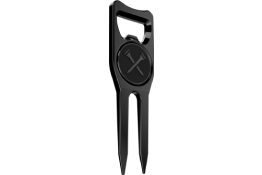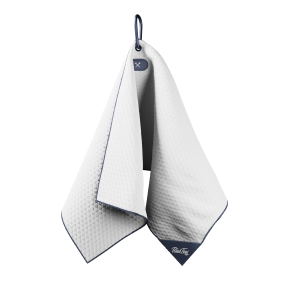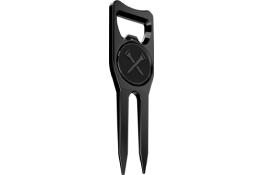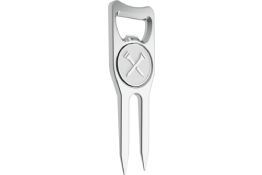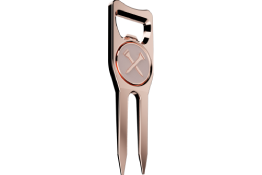What to Expect in your First Golf Tournament
You finally signed yourself up for that club championship. It’s exciting and frightening all at the same time. Knowing when your game is tournament ready can be very difficult. You never know until you try if your game will thrive or fold under pressure. Tournament golf and leisure golf are two completely different things. Some of the best players out there can’t play unless there is something “on it”. It has to matter in some way, it’s a natural competitive drive that some will discover through the game of golf. A true competitor or not it’s always good to know what to expect when you are competing in your first tournament. Here are 5 tips/suggestions we have for you when it comes time to tee it up for the win!
Rules: Do you really know the rules? Tossing a ball in about where it got lost is not a part of the rule book. Carrying 15 clubs around because its hard to choose between that 4 iron or 4-hybrid, is also not in the rule book. Do you know what casual water is? Just do a quick brush up on the rules. Most importantly know how to navigate a rule book. You don’t need to memorize every thing that is in there as long as you know how to find anything you might need. Keeping a Rule book in your bag is a must for any kind of tournament play. If you don’t need it (which we hope you don’t) your playing partners might, it’s a tool you don’t want to be without. You can check the USGA Rules of golf site (https://www.usga.org/rules-hub.html) for lots of great information, videos and rulings. Remember that the Rules are there to help you as well. If something seems really unfair as far as a lie or obstruction it might be time to check it in the rule book.
Prepared: Runners train for marathons, fighters train for fights, golfers need to train for golf tournaments. It’s going to be different than your weekend rounds with your friends. You are going to care A LOT more about each shot and it will become mentally draining. Knowing how to adjust after you make a birdie and after you make a 7, is imperative. If you put in time prior to the tournament to practice and prepare both mentally and physically, you will be able to use that thought when you are on the course. There is nothing worse than being ill prepared and you happen to have a case of the hooks that day. If you have been practicing for a while and you start hooking it you will know how to adjust and what do to. Preparing for tournaments does not have to be hitting thousands of golf balls. Preparing can be as simple as trying to beat a certain score at your favorite course, or playing your friend for $10.00. Just start to make each shot and each round count as it will when the actual event comes around.
Nerves: If you are NOT nervous then you might as well go home. It simply means you don’t care that much. If you don’t care that much its not worth playing in a tournament. Nerves can help if they are channeled correctly. At times nerves can lead to adrenaline and you may hit the longest drive of your life, also can lead to the longest nine iron you have ever hit over the back of the green into the bunker, so be prepared for that. The best way to combat nerves is to focus on tempo when you prepare for a tournament. As all good players know, tempo is extremely important and when it gets thrown off the whole game is in trouble. Try to keep a nice even tempo especially on that first tee box when the nerves will be at their highest. When it comes to tempo don’t leave out the putting stroke. Those two footers you miss will haunt you forever.
Know the Course: It’s really hard to play in a tournament at a course you don’t know. At the very least you should try and walk the golf course at some point before your event. If at all possible, walking the course from the 18th green back to the 1st tee box can be very effective. Try to get a yardage book and plan out some of your shots. The holes you feel uneasy about come up with a solid plan for yourself. Don’t go into the tournament being intimidated about any of the shots, plan and prepare for them and you will be fine. If you can’t get out to the course to practice try to take a look at the website for the golf course. Most courses have pictures and scorecards online and you can come up with a plan before the day of your event.
Short Game: All golfers know how important putting and chipping are. Tournament players know that they are vital. You cannot compete in tournaments if your short game fails you. Chipping and Putting can save your score, they can help you break 80, they can get you up and down and onto the next hole without a disaster. You are going to hit bad shots in your round, how you recover from that is going to end up making all the difference when it comes to your results in the event. Your ability to score is just as important as your ability to hit a solid shot. There will be people that can hit the ball further than you and that can throw your game off, forget them. Chip and putt better and your score will undoubtedly be lower. Short game requires lots of practice as there is so much feel involved. Make sure to dedicate an appropriate amount of time to preparing your short game before your next event.
If you have been playing golf for several years and continuing to improve it really is worth signing up for some type of a tournament to test out your game. Even the C Division of a Club Championship can be extremely competitive and fun to participate in. There are many formats for golf tournaments as well, some find their game better suited to match play and others enjoy stroke play. Whatever it is that works for your game, testing yourself in a tournament situation is something that you won’t regret. Did you follow any of our tips? How did your event go? Let us know!












